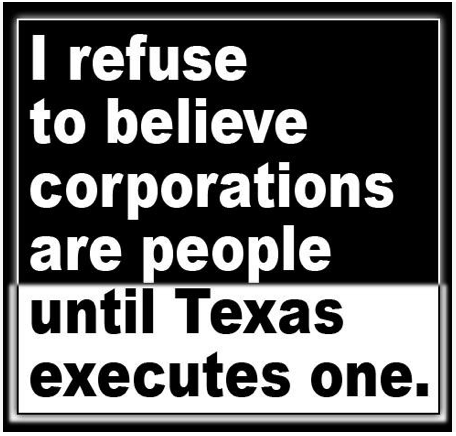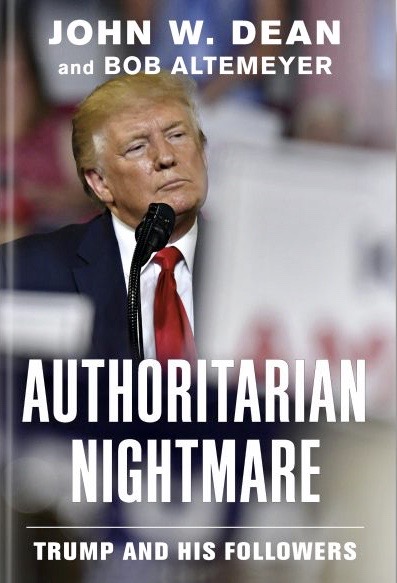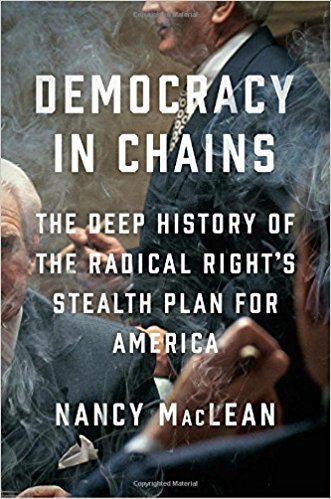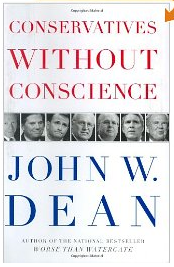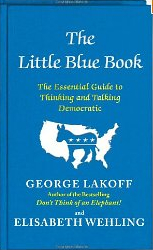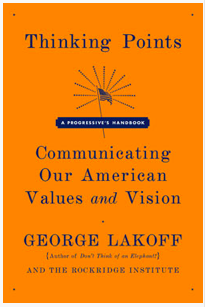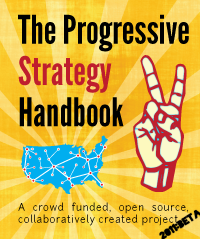I must share this.
Back in February, the Senate voted to immunize telecommunications companies for being duped by the Administration into eaves dropping on all kinds of communications. When Senator Hutchison’s vote supporting immunity was reported to me, I sent her the following message via her web site:
Dear Senator,
I am writing again to express my concern about your national priorities. Again your vote has shown excessive support [for] large corporations. You voted yes to grant immunity to the phone companies and others ….
Phone corporations have plenty of high paid well educated lawyers to defend them. They don’t need Republicans and the Administration to give them special immunity.
This immunity is of special concern since the Administration was directing the phone companies. I’d call granting immunity a conflict of interest and question anyone’s ethics that supports this immunity.
Is granting immunity just another means for protecting an Administration known for its lies and fear mongering? Isn’t the possibility of wrong doing even more reason not to grant immunity.
If the phone companies are guilty of wrong doing, corrective action is required. That in turn could point [to] Administration wrongs and violations of our Constitution. Don’t we the people deserve the truth or at least the ability to uncover it?
What kind of national security can we have, if we the people can’t trust those in elected office to be honorable, respectful of its citizens, and willing to admit mistakes? Granting immunity is not helping we the people or national security.
On March 7, I got the following response by email:
Dear Mr. Hailey:
Thank you for contacting me regarding the Foreign Intelligence Surveillance Act. I welcome your thoughts and comments on this issue.
The Foreign Intelligence Surveillance Act (FISA) of 1978 provides the basic framework for the use of electronic surveillance in the context of foreign intelligence gathering. Over time, FISA has been amended to expand intelligence gathering to physical searches and access to certain business records. Following the September 11, 2001, terrorist attacks, the USA PATRIOT Act made significant changes to some FISA provisions in order to aid in the capture of suspected terrorists.
On August 5, 2007, the President signed the Protect America Act of 2007 into law. The Protect America Act updated FISA to close a critical gap relating to the surveillance of suspected terrorists and to address limitations on surveillance created by a 2007 FISA Court. The Protect America Act was a temporary measure that expired on February 16, 2008 after one 15-day extension. After months of careful analysis, the Senate Select Committee on Intelligence reported S. 2248, a comprehensive bill reforming FISA and extending critical collection authorities for a period of six years. The bill includes important safeguards to protect privacy and civil liberties, including procedures to prevent the dissemination of information about U.S. citizens that has been collected incidentally during certain surveillance activities.
S. 2248 contains a number of other provisions, including an extension of liability protection to electronic service providers that may have cooperated with the federal government after 9/11. Many of these firms face class action lawsuits in which the government may assert its privilege in order to protect sources and methods of intelligence collection. This privilege limits the ability of the companies to provide evidence to defend their alleged conduct. I recognize that some oppose the liability protection, but I joined 67 of my Senate colleagues in supporting the Senate Intelligence Committee bill because I believe that it is untenable to allow the lawsuits to proceed at the same time that we limit the ability of the defendants to produce evidence critical to their cases. The potential liability awards that might result could be catastrophic, negatively affecting the broader economy and signaling to these companies, and to other private entities that we may need to rely upon in the War on Terror, that their cooperation carries major risks. On a bi-partisan basis, the Senate passed S. 2248 with the liability protection provisions. The Senate now awaits action by the House.
Please know that I will continue to work with my colleagues in Congress to safeguard the security of our nation while upholding our personal privacy rights and civil liberties.
I appreciate hearing from you, and I hope that you will not hesitate to keep in touch on any issue of concern to you.
Sincerely,
Kay Bailey Hutchison
United States Senator284 Russell Senate Office Building
Washington, DC 20510
202-224-5922 (tel)
202-224-0776 (fax)
http://hutchison.senate.govTo signup for Senator Hutchison’s weekly e-newsletter, please send your request to newsletter@hutchison.senate.gov.
PLEASE DO NOT REPLY TO THIS MESSAGE AS SENATOR@HUTCHISON.SENATE.GOV IS NOT A VALID E-MAIL ADDRESS.
Due to the tremendous volume of mail Senator Hutchison receives each day, she requests that all email messages be sent through the contact form found on her website at http://hutchison.senate.gov/contact.html. Thank you.
I replied with the following:
Ms. Hutchison,
Thank you, or you staff, for responding to my concerns.
I think we can all agree that updating our laws, as necessary for national security is good.
However, like the majority of the citizens of this country, I think Mr. Bush is wrong. He has been wrong for at least 6 years. He was wrong when he asked these companies to do what ever they did and he is wrong now. Not only was he wrong about the threat of Iraq, not adequately supporting our troops and not asking the rest of us to sacrifice, he is wrong about protecting a few companies out of the millions in this country. He is also wrong for using scare tactics to get his way.
Equally, you are also on the wrong side of this issue and are just as guilty as he for fear mongering and giving priority to corporations over the citizens of this country: “The potential liability awards that might result could be catastrophic, negatively affecting the broader economy and signaling to these companies, and to other private entities that we may need to rely upon in the War on Terror, that their cooperation carries major risks.” Surprise, surprise, there are risks in doing business, especially with our government – except for Haliburton and your favorite oil companies.
I’m sorry, the national losses for not protecting these few companies will be pennies compared to the world wide losses of the ongoing subprime fiasco.
If the terrorist threat is that great, why does corporate immunity trump it – Bush’s veto?
If these companies were responding to a request of the president, who is this immunity really protecting?
If these companies were just “following orders” from the Administration, who’s guilty? Wasn’t the former leader of Iraq hanged for the wrongs he requested of others?
You both talk about how these companies won’t be able to provide evidence in their defense in a law suit. Well, who’s fault is that and what are the Administration and the Senate really trying to protect? What I see is “firewalls” to protect wrongs. The outside firewall is the immunity for some companies that got suckered. The inner firewall is the cloak of national security and the president will, if pushed to the wall, sacrifice these companies just like he has sacrificed our civil liberties to protect those secrets. What hypocracy.
Don’t you get it, George, and the Senate, have lost the trust of the plurality of we the people. Whether we ever find out about any wrongs or not, there is still the appearance of wrong doing, especially in the brighter light of today’s more balanced national government. The Republican Single-party State has failed and … [its] end is near.



